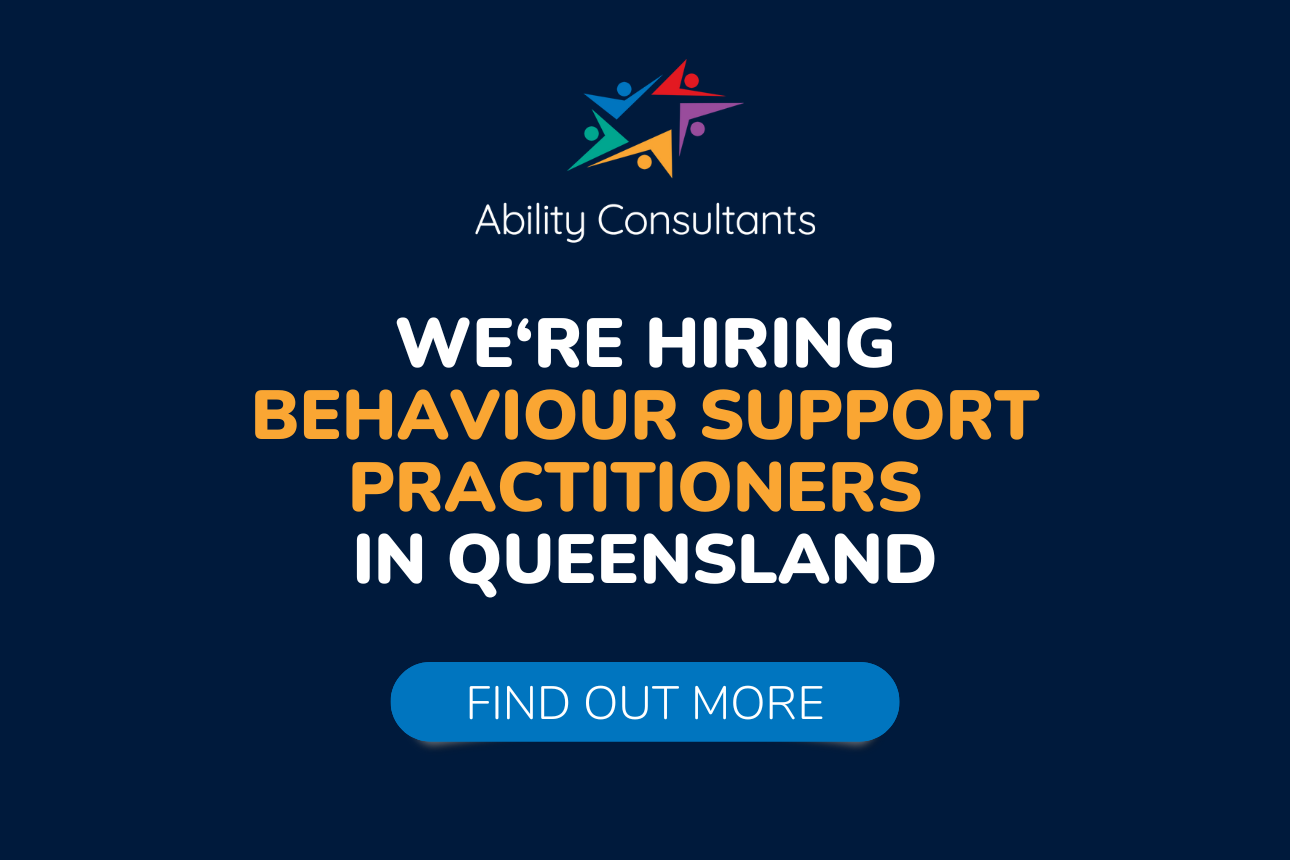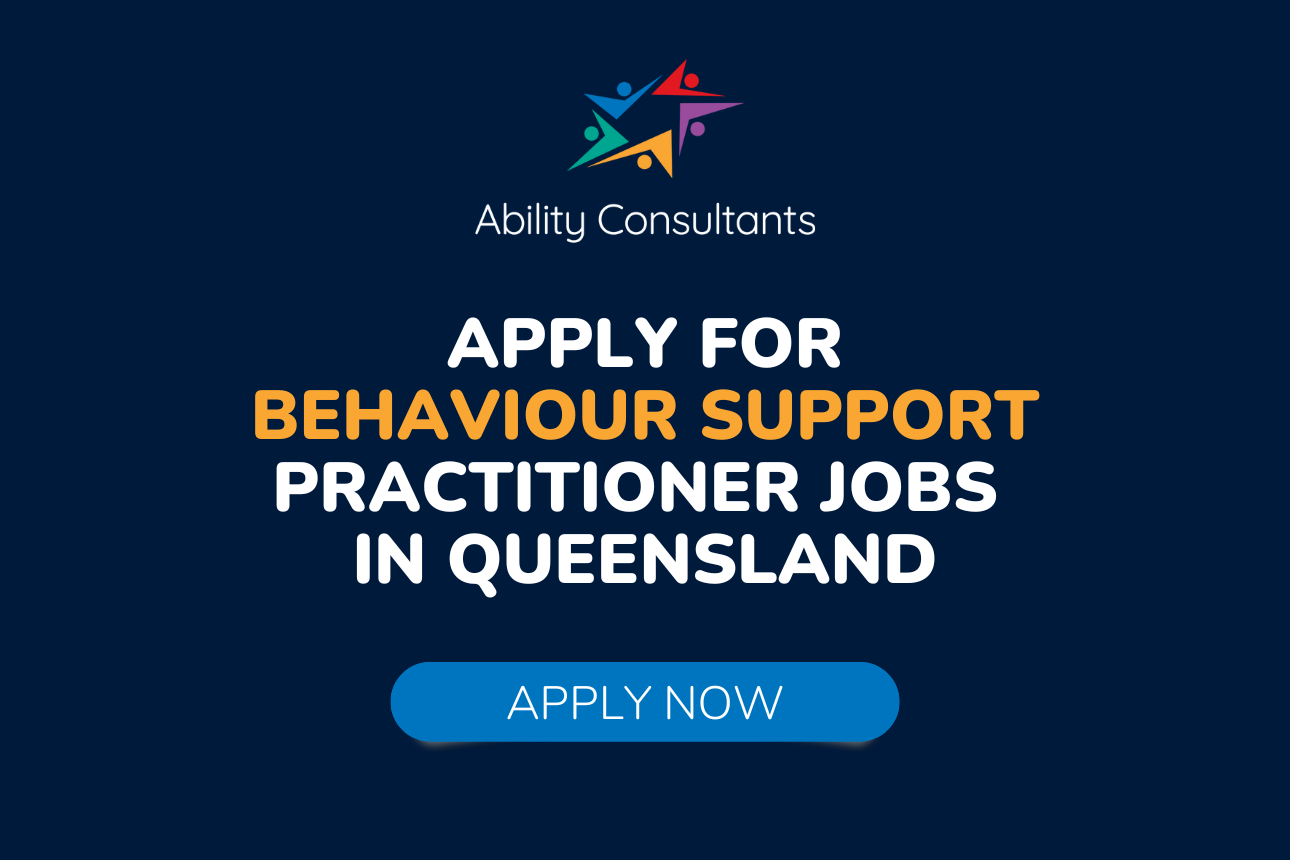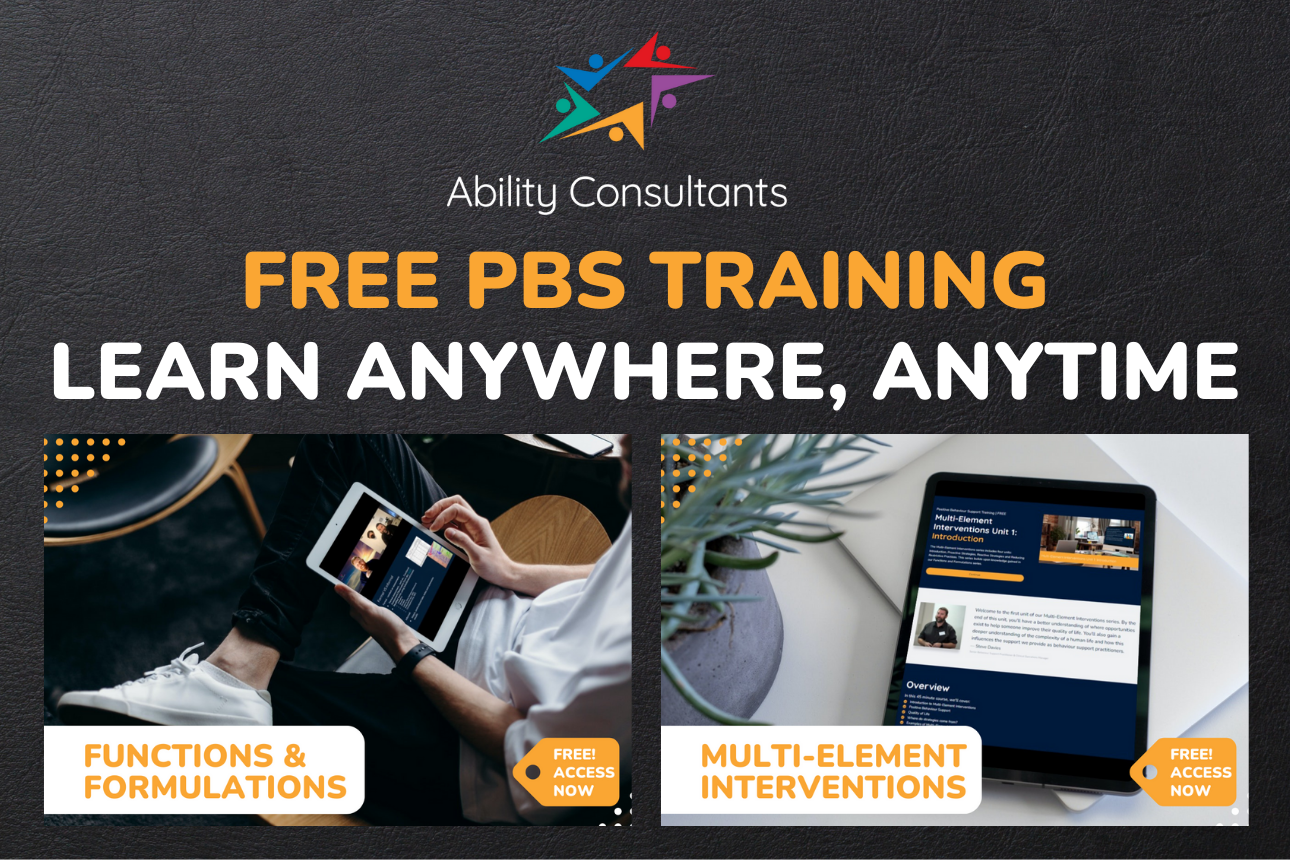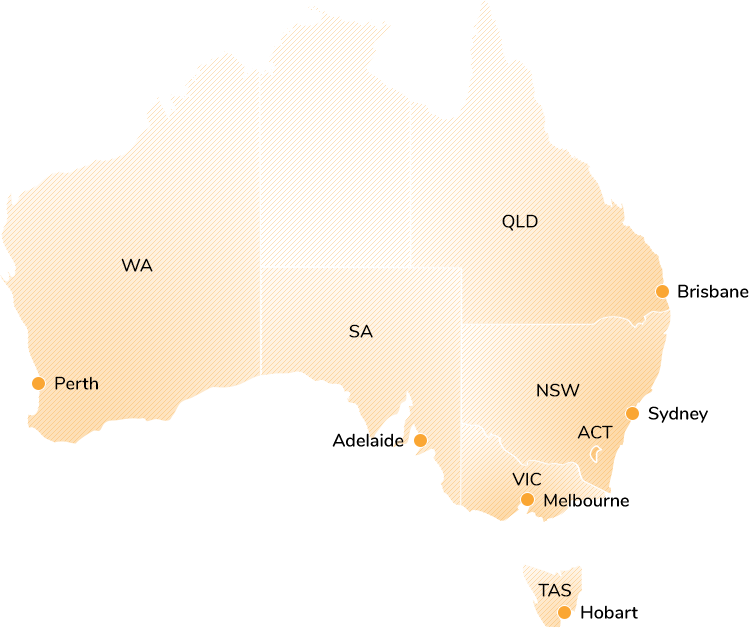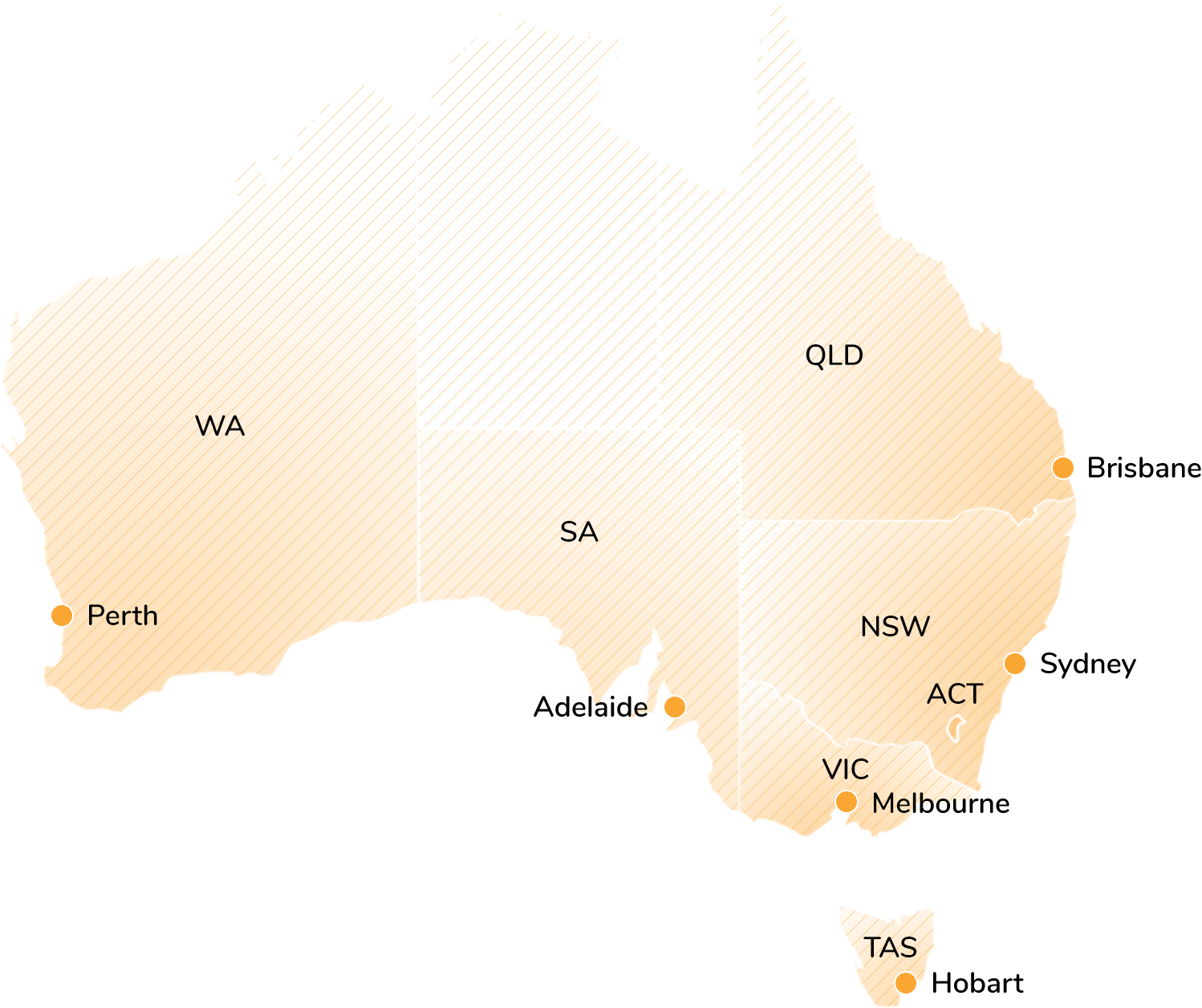Behaviour support practitioner jobs in Queensland | Find them here!

If you’re looking for behaviour support practitioner jobs in Queensland, you’ve come to the right place!
Our mission is to create freedom and social connection for people with disability through easy access to Positive Behaviour Support (PBS). Our Queensland team is growing and we’re looking for individuals who align with our mission.
> Want to skip ahead and find behaviour support practitioner jobs? Check out our careers page for ongoing updates and information on how to apply to become a behaviour support practitioner. To find out more about our PBS roles in Queensland, check out our Q&A below.
Introducing Vanessa Bell, Queensland Clinical Lead
Today we’re catching up with Senior Behaviour Support Practitioner Vanessa Bell, who’s also a Team Leader and our Queensland Clinical Lead. Vanessa shares what it’s like working in Positive Behaviour Support (PBS) and provide you with more insight into our current PBS practitioner role in the Bundaberg and Fraser Coast region.
About behaviour support practitioners
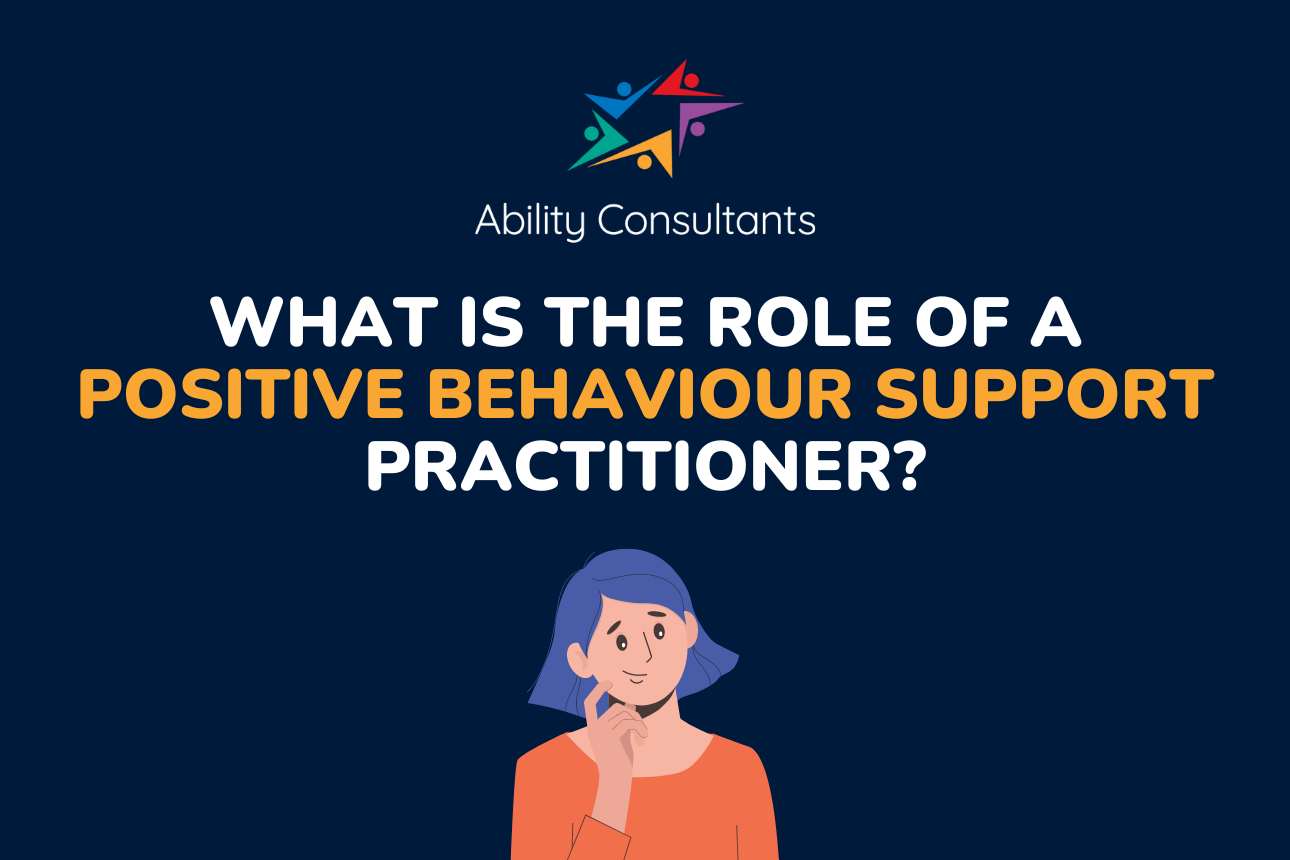
What is the role of a PBS practitioner?
Behaviour support practitioners improve quality of life by connecting with a person and empowering them to live their best life. This is done in many ways, such as improving relationships, learning new skills and making progress towards personal goals.
A behaviour support practitioner completes assessments to identify behaviours of harm or concern (such as hitting others or hurting themself), which a person may be using to communicate, in lieu of having another functional way of communicating their needs.
The role of a behaviour support practitioner is to identify all the people and moving parts which are central to a person, and then work with the person and their key stakeholders to undertake assessment, which informs interventions.
PBS practitioners work in a holistic way to review recommendations by all professionals involved and ensure assessments and recommendations are taken into account. They also establish and review formal behaviour data through behaviour assessments and individual reports to understand from an evidence base, what people are communicating using behaviour and why this is currently the most effective communication for them.
From there they develop proactive strategies to address environmental factors, motivate people to change, teach replacement behaviours and skills, and improve quality of life. They also develop planned ways to respond to risk behaviours when they occur.
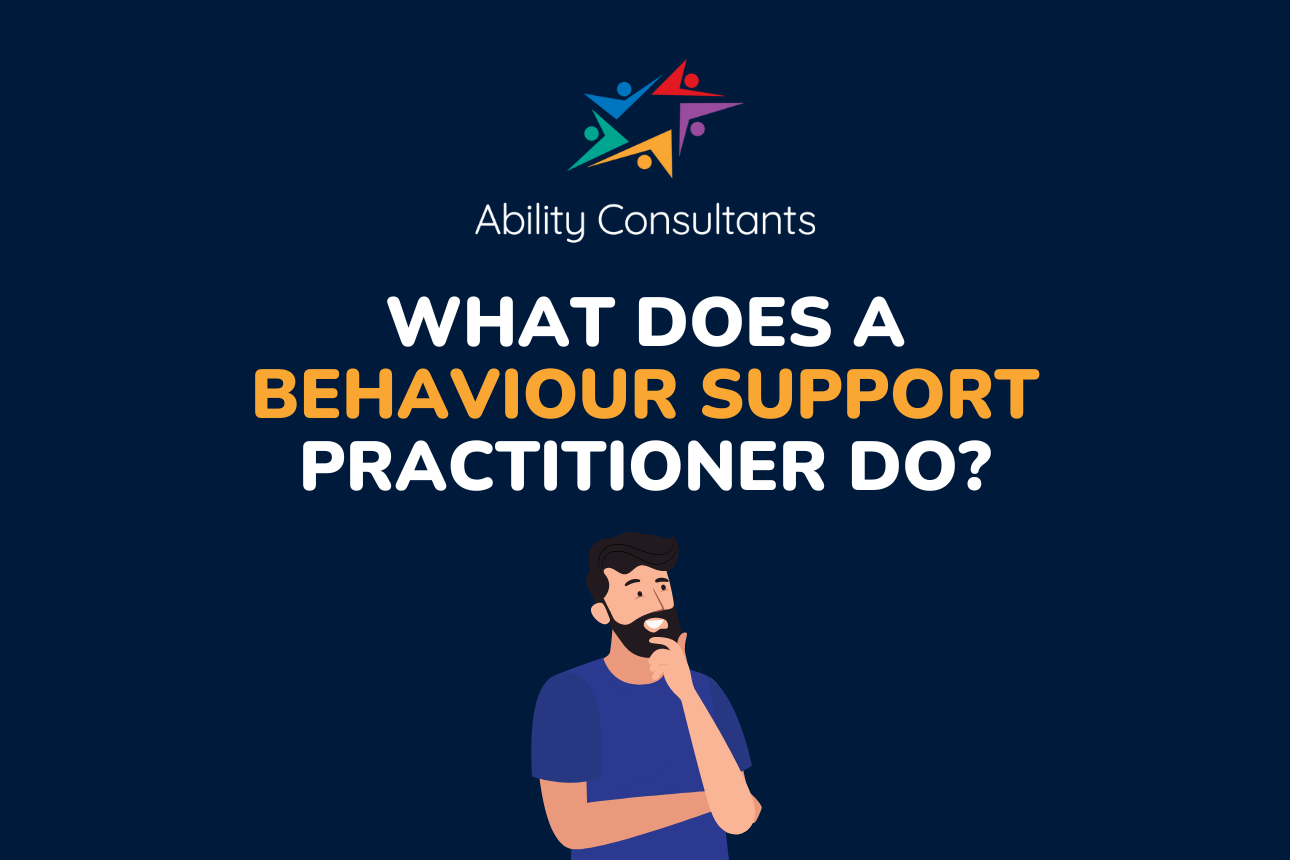
What does a behaviour support practitioner do?
A behaviour support practitioner:
- Develops a relationship with their client
- Places their client and their client’s needs and goals at the centre of their support
- Ensures the human rights of their client are upheld, especially in relation to restrictive practices and legislated compliance
- Collaborates with stakeholders important to their client
- Collects and analyses data
- Reviews assessments from health providers
- Completes assessments (behaviour, motivation, quality of life, risk etc.)
- Seeks to understand a sequence of behaviour (setting events, triggers, behaviour, maintaining consequences)
- Develops hypotheses on why their client engages in a behaviour of concern
- Develops interventions (positive support strategies, teaching strategies, response strategies, restrictive practice protocols etc.)
- Delivers training on how to implement positive support strategies
- Provides coaching and monitors the implementation of behaviour interventions.
What might a typical day look like for a behaviour support practitioner?
Whilst the role of a behaviour support practitioner is extremely varied (which in my opinion is one amazing part of the role), a typical day may involve a combination of some of the following:
- Communicating with stakeholders
- Spending time with clients in their home and out in the community
- Completing assessments
- Analysing and interpreting data
- Writing reports, assessments, interventions and recommendations
- Developing and delivering client-centred training
- Engaging in clinical supervision with a mentor or peers.
Is a behaviour support practitioner a psychologist?
The role of a behaviour support practitioner is distinctly different from that of a psychologist, however some behaviour support practitioners have studied psychology or may be a registered psychologist.
Psychology is a therapy intervention directly with a person. It may involve regular therapy and/or assessments which are very specific to psychology, such as cognitive assessments using the Wechsler Intelligence Scale for Children (WISC-V) or the Wechsler Adult Intelligence Scale (WAIS-IV).
You can find more information about psychology here, including how it relates to Positive Behaviour Support.
How to become a behaviour support practitioner in Australia
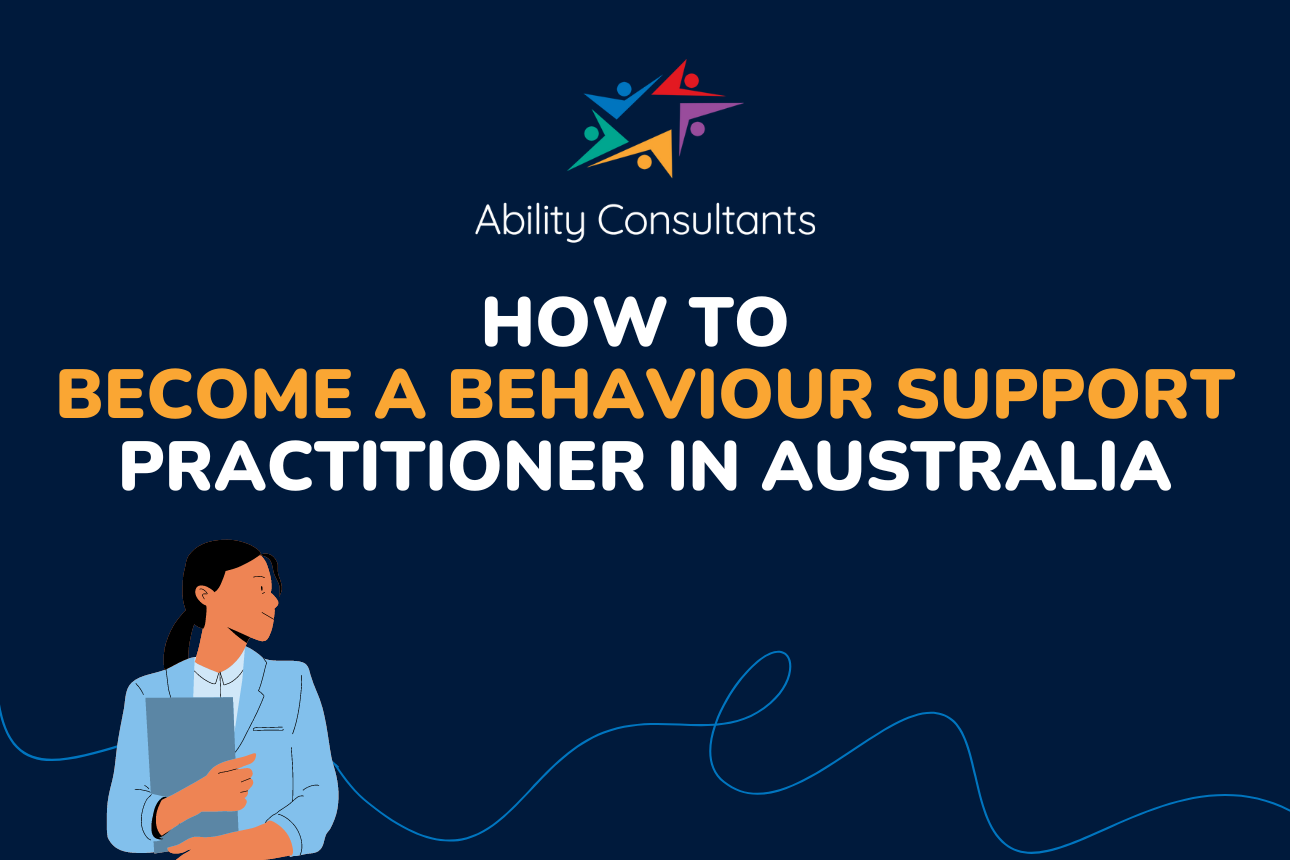
There are quite a few pathways to becoming a behaviour support practitioner. Can you tell us the path you took?
I started working as a disability support worker when I was 19. I continued to support people with disabilities while I studied.
Upon completing study I moved into a service delivery supervisory role. From there I worked within respite service and supported independent living services. I supported teams to identify restrictive practices, contribute to the development of Positive Behaviour Support Plans and implement PBS strategies.
My interest in that space continued to grow and then I applied for a behaviour support practitioner role. I’ve continued to work as a behaviour support practitioner ever since and have now been working in this ever-changing, challenging and rewarding space for the past eight years.
What qualifications are required to become a behaviour support practitioner in Australia?
No formal qualifications are presently required, however experience in supporting people with disabilities is highly beneficial and desirable. Transferable skills from youth, forensic, mental health, and teaching are also great experience to get started as a behaviour support practitioner. Formal qualifications in diverse fields are beneficial — our PBS practitioners have a range of tertiary qualifications — click here to find out more about our team at Ability Consultants.
Under the NDIS, behaviour support practitioners are required to self-assess against the NDIS Quality and Safeguards Commission PBS Capability Framework, which provides a great understanding of learning gaps and experience to gain in order to become a competent and confident behaviour support practitioner, who delivers quality behaviour support to people.
What support can new team members expect as they become more experienced in their role of PBS practitioner?
At Ability Consultants we provide weekly 1:1 mentoring with a Team Leader, which in the onset is at least 1 hour per week, often longer. We also have a comprehensive training library which teaches the necessary skills to provide quality Positive Behaviour Support, such as; Functions and Formulations, Motivational Conversations and Multi-Element Interventions, to name a few.
At Ability Consultants we develop Individual Learning and Development Plans which are reviewed periodically, to ensure practitioners are continuing to develop within their roles, and are supported to reach their professional goals.
Is there a typical career path for behaviour support practitioners? What might this look like?
Behaviour support practitioners are supported to complete an Alternate Assessment Pathway application to obtain a suitability status with the NDIS commission. This allows them to work at the core level in accordance with the NDIS Capability Framework, whilst being supervised by a proficient practitioner.
Within 12 months of receiving a suitable status via the Alternate Assessment Pathway, practitioners are required to lodge a Self Assessment to maintain their suitability. Using the seven domains of the NDIS Capability Framework, they can determine if their skills and experience are at a core, proficient, or advanced/specialist level and lodge accordingly.
As a practitioner continues to meet their goals in their Individual Learning and Development Plan, this guides them to further develop their capabilities so they can continue to reassess against the Capability Framework. This provides a career development pathway, from core through to proficient, and then advanced/specialist. Once practitioners are at a proficient or higher level, they are then able to engage in supervision and mentoring of other practitioners. At Ability Consultants we have team leader roles, which many of our proficient or higher practitioners move into as they progress in their career.
We’re hiring behaviour support practitioners in Queensland
Vanessa, tell us about our recent growth in Queensland.
The last twelve months have been really exciting for our QLD clinical team, in that we have expanded our ability to support participants based on the Gold Coast, Toowoomba, Cairns and Townsville.
We have also developed a team of four practitioners within the Moreton Bay region, which has allowed us to provide accessible PBS to their community. Our Brisbane team has continued to grow, with us now being able to service participants on the Bayside, and our Ipswich team has also grown, increasing our connections with their community.
Where do you anticipate growth in Queensland in the next 12 months?
At Ability Consultants, we grow in line with our clients’ needs and in light of this are always accepting applications for behaviour support practitioner roles.
In Queensland, we are currently focusing on building our capacity in the Wide Bay—Burnett region, particularly in Bundaberg and the Fraser Coast. We are also committed to further supporting our participants in North Queensland, Cairns and Townsville.
Tell us about the behaviour support practitioner role in the Bundaberg and Fraser Coast regions.
Currently, we have a Brisbane-based practitioner who is travelling periodically to support our clients in Bundaberg and the Fraser Coast. We are very interested in hiring a PBS practitioner based in the Wide Bay—Burnett region so we can provide an even higher level of face-to-face support, as well as connect with other members of the community who are seeking Positive Behaviour Support.
One of my favourite things about working with Ability Consultants is the true embodiment of the values of freedom and social connection. In accordance with those values, we are flexible in how the practitioner role will be structured in the Bundaberg and Fraser Coast region. The role may be on a contractor or an employee basis, and will include some travel to support NDIS participants across Bundaberg and the Fraser Coast.
This practitioner will receive weekly 1:1 mentoring sessions, as well as additional support as they develop relationships in the Bundaberg and Fraser Coast NDIS community.
How to apply for a behaviour support practitioner role
Please feel welcome to view our behaviour support practitioner jobs on our careers page, where you can find information about how to apply. You are also welcome to get in touch using our contact form or by calling our team on 1300 694 625.
We also feature a number of team interviews on our website and further PBS career resources here.
Free Positive Behaviour Support training
Wherever you are in Australia, you can access FREE Positive Behaviour Support training. We provide ongoing training to our behaviour support practitioners and offer a number of online courses to the public.
Click here to access our free Positive Behaviour Support training in our Summit bundle, including our Functions and Formulations series and Multi-Element Interventions.



